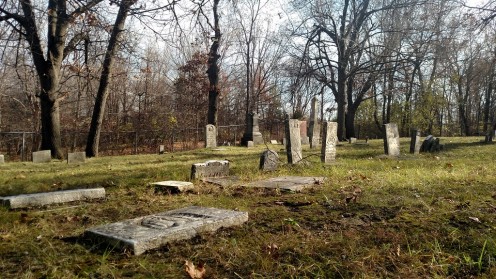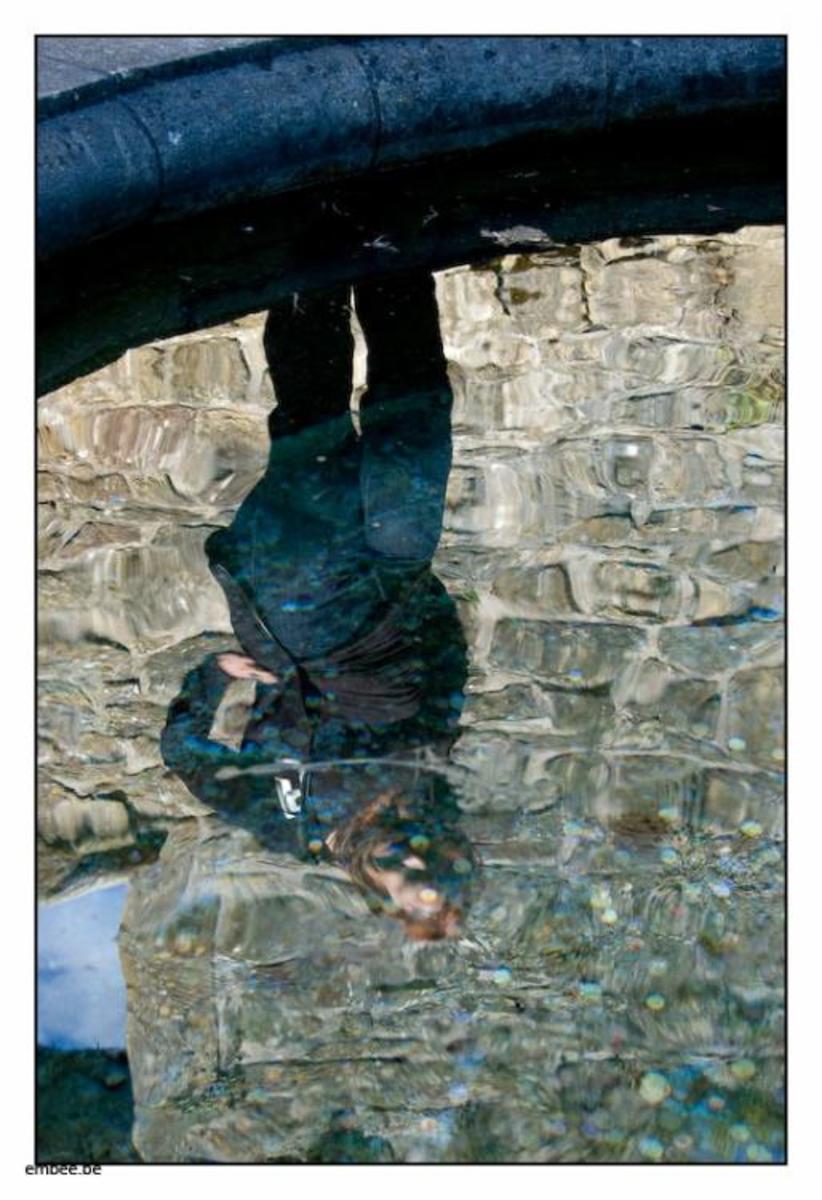Weston Wagons West - Episode F6 - Ferrell Faced ‘Adversities Aplenty’
The cemetery was visited much too often in those days

Ferrell Followed the Burr Conspiracy Trial and More
[‘Adversities Aplenty’ is the title of Chapter Seven in David McCullough’s The Pioneers on 1807]
While much of the country focused their attention on the Burr trial in Virginia in the summer of 1807, the attention of folks in Marietta, Ohio, was drawn to something much more serious, and closer to home - an outbreak of deadly fever. Only two years earlier, in 1805, Philadelphia and other cities in the east had suffered a yellow fever epidemic that took more than 400 lives. Young physician Dr. Samuel Hildreth, recently arrived in the Marietta area, was familiar with that epidemic and noted that some here now suffered from that fever. However, more and more of the current cases were something else. He noted that most here were bilious fever, or influenza. The symptoms included pain in the head, bad taste in the mouth, pain in the back, followed by fever, attended with more or less delirium.
Dr. Hildreth had settled in Belpre, a community just to the south of Marietta, along the Ohio River. There, he soon found himself responsible for no fewer than 100 cases. In Marietta, where an unknown number suffered from the fever that summer, between fifty and sixty men, women, and children died. Of the 100 cases under Dr. Hildreth in Belpre, however, only two or three died, and his reputation soared. Further to the west, where the Weston and Dolan families lived, they were not struck as hard in numbers, but one of the casualties was Ferrell and Julia’s baby girl, Rosetta, barely over a year old. Several of the other casualties in the neighborhood were also very young children. Only a few adults and older children, though many were very ill, perished from the fever.
Meanwhile, in the Burr trial, despite all the efforts of the Jefferson administration to convict Burr of treason, for lack of solid evidence, Burr was acquitted. However, with his reputation totally shredded, Burr went into self-imposed exile in England, and later returned to New York to live out his life, constantly fighting financial difficulties.
They had to return to their farming to sustain their lives

Ferrell and the Community Faced Further Adversity as 1807 Came to an End
In the last weeks of 1807, adversity hit from a totally unexpected source. President Jefferson, with the immediate support of Congress, passed the Embargo Act, in hopes of strangling English commerce at sea. They did so in hopes of avoiding all-out war with England, a war the United States was not equipped to fight. The local impact of the Act, however, was that all shipbuilding on the Ohio and the Muskingum came to an abrupt halt.
During the summer of 1807, for example, the Marietta shipyards, including those of Joseph Barker on the Muskingum, were building two ships, three brigs and two schooners all at one time. At the end of the year, ship building had ceased completely. The whole local economy went into a slump from which it would not recover for several years. They joined the eastern seaboard in suffering severely. Both town and farm values slumped in value…new building improvements were completely halted. It was during this period that the Marietta area slumped and the Cincinnati area prospered. Cincinnati was not so closely tied to the shipbuilding industry.
For Ferrell and Julia Weston, these changes meant going back to the basics. They relied on their subsistence farming, with reduced farrier and blacksmithing work, but they were able to ‘get by.’ Others were not as fortunate. This was especially true of those who assumed ‘good times’ would go on forever, had extended their credit while purchasing unnecessary land and equipment. Many lost all they had. Others simply picked up and moved on, hoping for better things down the line, whatever that might be.
Ferrell and Julia had another son that they named Ferris

Ferrell Looked Hopefully to the Future
Most folks in Marietta didn’t know about it at the time, but in August of 1807, in New York, Robert Fulton’s new steamboat made her memorable journey up the Hudson River to Albany and back, attaining a speed of five miles per hour. It took four years for the first steamboat to appear on the western waters. In the meantime, life went on for the Weston and Dolan families. Another daughter, they named her after her mother, Catherine, was born to the Dolan family in 1808. Ferrell and Julia had a boy, in 1809, to join Joe, now 5. They named their second son Ferris. And in February of 1811, the Dolan family was blessed with another son. They named him William after his father.
In late October 1811, the first steamboat on western waters, the New Orleans, departed from Pittsburgh under the command of its builder, Nicholas Roosevelt, and proceeded down the Ohio River at the astonishing speed of 12 miles an hour. Its stop in Marietta was greeted by cheering crowds at a brief stop over. It then proceeded down the Ohio River and down the Mississippi, all the way to New Orleans. 2,000 miles in fourteen days. The age of steam had arrived in the west. The movement of produce and supplies, as well as people, both up and down the rivers, took on a whole new life. Positive times had returned.
In mid-December of 1811, Marietta was hit by a major earthquake. It happened at night. Many thought they were under Indian attack. Chimneys were toppled. The following morning, aftershocks nearly as strong as the original quake occurred. Many thought Judgement Day was upon them. The smaller quakes continued into early 1812. Chunks of river banks fell into the rivers. Gaps opened up on the land, swallowing trees whole. As scary as all of this was, after some clean up efforts, life went on. Neither the Dolan nor the Weston families were directly affected by the quakes. But everyone wondered, what comes next?
Less than six months later, the United States was at war with Great Britain. The War of 1812, as it came to be known, was far from popular with the general population. It was especially opposed by the Federalists, who had already had enough of the policies of Jefferson and Madison since the 1800 election. Ohio folks were especially concerned that war with the British might stir up the “Indian menace.” They knew that the great Shawnee chief, Tecumseh, and some of this followers had joined the British army in Canada. How would this affect the Northwest Territory?
Note by the author
The Fx and Hx series of historical fiction family saga stories consist primarily of characters that are fictional. Any real persons, Dolan, Barker, Cutler, Hildreth, and Putnam, for example, are used here fictitiously. The Dolan family in Marietta were actual direct ancestors of the author’s wife. Two of the Dolan sons, John and James, were her third great-grandfathers. She and I have visited the area doing family history research. Activities and events are consistent with known historical facts, but are entirely fictitious. Cousins of these Weston characters, the Jacob and Levi Weston characters, were first created as a part of “The Homeplace Saga” stories. The first 20+ episodes of this Lx series filled in the early years of the lives of Levi, Jacob and their family, also descendants of Thomas and Fred Weston. The author first created the characters Joe, Jake and Hank Weston in 1998 (they had not been published prior to this hub series).





